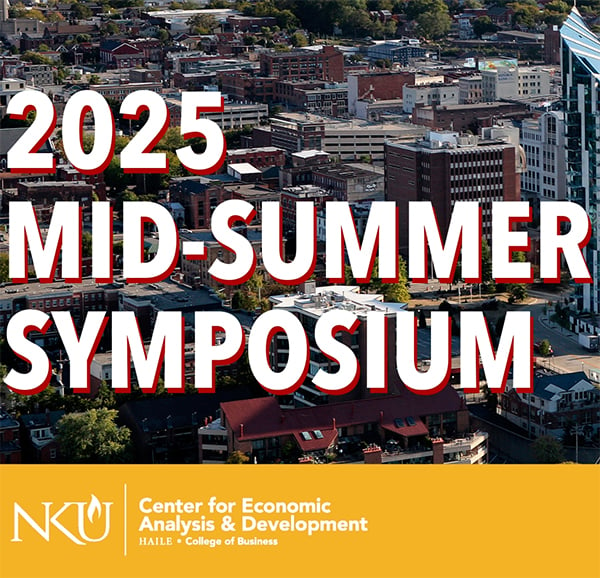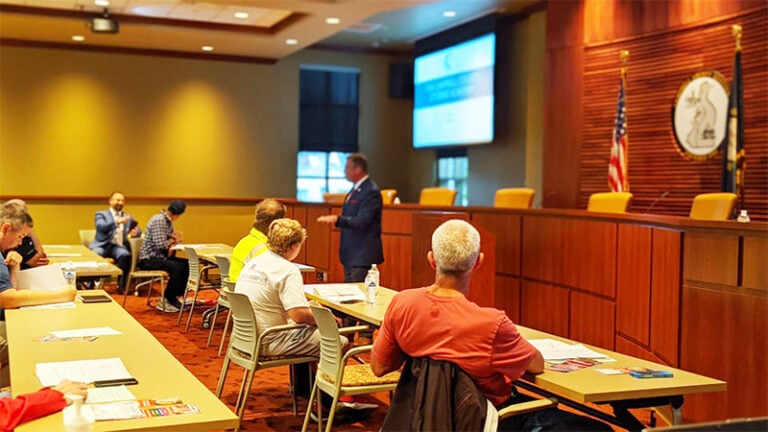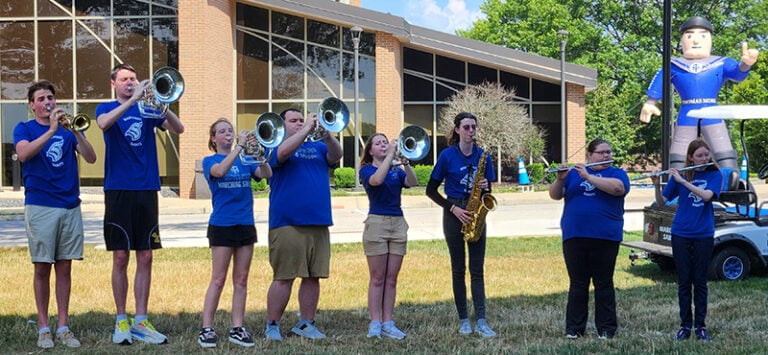If you’re black or brown or poor, it’s obvious now that Senate Republican Leader Mitch “Root-‘n-Branch’’ McConnell couldn’t care less about your sacred right to vote.
House Bill 1 in the 116th Congress is titled the For the People Act, and is intended to address many of the glaring deficiencies in the nation’s electoral system. It strengthens campaign finance laws, establishes new ethical standards for those holding federal office and, perhaps most importantly, seeks to expand voting rights.
The reasoning behind the latter is simple – the more the merrier when it comes to exercising the franchise. Too many people remain on the outside looking in and the reason, to a great extent, is lack of opportunity. U.S. voter turnout fluctuates from about 60 percent in presidential election years to about 40 percent in midterms. In Kentucky, for comparison’s sake, a measly 25 percent of registered voters made their way to the polls for the gubernatorial election in 2011, 28 percent in 2015.
According to Pew Research, based on U.S. Census data, 21.4 percent of eligible Americans were not even registered to vote in 2014.

Those numbers indicate a troubled system if you believe people should be involved in their government.
The House bill would, among other things, create a national automatic voter registration system requiring voters to opt out of the system if they choose not to participate. rather than opt-in. Early voting, same-day voter registration, and online voter registration would be promoted. Election Day would become a federal holiday under the plan, making it easier for voters to head to the polls. Gerrymandering in congressional races would be prohibited.
If none of those proposals sound particularly radical, it’s because they aren’t. Yet McConnell, the Louisville Republican, is mocking the package, declaring that the Senate won’t deign to even consider it, characterizing the measure as a “power grab’’ by the newly constituted Democratic majority in the House.
“H.R. 1 would victimize every American taxpayer by pouring their money into expensive new subsidies that don’t even pass the laugh test,” McConnell said on the Senate floor.
All this led Senate Democratic Leader Charles Schumer, D-NY, to ask on Twitter, “Why are Republicans always afraid of making it easier for Americans to vote?”
The answer is simple – suppression works. McConnell knows enlarging the voter pool, expanding the franchise, helps Democrats because it brings in more people of color. And lord knows we can’t have that.
McConnell has never been a proponent of extending voting rights despite his ever-unctuous claims to the contrary. In his self-congratulatory book The Long Game, ol’ Root-‘n-Branch waxed rhapsodic over being in the White House as the guest of Sen. John Sherman Cooper, R-KY, when President Lyndon Johnson signed the Voting Rights Act of 1965.
“I was overwhelmed to witness such a moment in history, knowing that majorities in both parties voted for the bill,” McConnell enthused.
Since assuming high office, however, McConnell has exhibited a preference for returning to colonial America where only adult male property owners – about 10 to 20 percent of the total population – had the franchise, thus eliminating those pesky black and brown voters who generally display little use for the senator’s contemporary Republican Party.
Back in the early 1990s, for instance, McConnell’s fellow Kentuckian, Sen. Wendell Ford, D-Owensboro, championed what came to be called the Motor Voter bill, which essentially required states to permit anyone over the age of 18 to register to vote while applying for a driver’s license or Social Security disability benefits.
Despite the bill’s simplicity and aim to increase political participation, it drew strong opposition from Republicans, who engaged in a two-week filibuster led by – you guessed it – the starry-eyed lawmaker from Louisville who was “overwhelmed’’ by the Voting Rights Act. McConnell asserted the measure was only intended to increase Democratic voter rolls and that it passed on the costs for implementation to the states, making it a federal mandate. Motor Voter only succeeded after concessions were made to limit the bill’s attempt to permit registration at outlets other than the MVA.
Then, in 2013, McConnell expressed support for a U.S. Supreme Court decision in Shelby County v. Holder that gutted Section 5 of the Voting Rights Act of 1965, the same law he so tenderly embraced 48 years earlier. The high court declared it was unconstitutional to require certain states and local governments, mostly found in the old Confederacy, to obtain federal preclearance before implementing any changes to voting laws or practices, maintaining the standards set were outdated.
McConnell became majority leader less than two years after that remarkably destructive decision, telling USA Today in June 2016 that he saw no reason for Congress to restore the law, claiming that the provision struck down “doesn’t apply anymore.”
Since the Shelby decision officials in some formerly affected states – North Carolina and Georgia being two prominent examples – have rendered it more difficult for blacks and other minorities, mainly Latin Americans, to vote. By 2018, almost 1,000 polling places closed in the U.S., a substantial percentage of them in predominantly African-American communities. States also changed early voting, purged of voter rolls and imposed strict voter ID laws that some qualified voters simply found impossible to fulfill.
The impact is obvious. In 2012, according to Pew, 66.6 percent of registered African-Americans voted. In 2016, the first national election since the Shelby decision, the number slipped to 59.6 percent. Only 47.6 percent of registered Latino voters made it to the polls in 2016.

That seems okay with ol’ Root-‘n-Branch.
McConnell’s view differs markedly from that of Stacey Abrams, the former Georgia state legislator who delivered the Democratic response to President Trump’s (OMG!) State of the Union address Tuesday night.
Abrams has some bona fides when it comes to talking about voting rights. She came within a few thousand votes last November of becoming the first African-American and first woman to become governor of Georgia, losing to Republican Brian Kemp, who served as secretary of state during the election and used every trick in the book to assure his victory and Abrams’ defeat.
During his tenure as the head of elections in Georgia Kemp was often accused of voter suppression. Carol Anderson, a professor of African-American Studies at Emory University in Atlanta, wrote in a New York Times piece that Kemp was “an enemy of democracy” and “an expert in voter suppression.” Among his transgressions – his office oversaw the closing of 214 polling locations, or 8 percent of the total locations, disproportionately affecting African-American communities.
In her response, Abrams said, “Let’s be clear: Voter suppression is real. This is the next battle for our democracy, one where all eligible citizens can have their say about the vision we want for our country. We must reject the cynicism that says allowing every eligible vote to be cast and counted is a ‘power grab.’”
The last comment, of course, was a dig at ol’ Root-‘n-Branch, who seems to believe that any effort to expand the franchise to the powerless and the disaffected can simply be summed up as an effort by Democrats to swell their support.
McConnell, with his history of placing party before country in so many instances, would naturally think along those lines. If he was in their position that’s what he would do. ‘Ol Root-‘n-Branch has already destroyed comity and progress in the U.S. Senate and played damaging games with the federal judiciary, including the Supreme Court. Now, apparently, he has his eyes on the nation’s democratic process.
The NKyTribune’s Washington columnist Bill Straub served 11 years as the Frankfort Bureau chief for The Kentucky Post. He also is the former White House/political correspondent for Scripps Howard News Service. A member of the Kentucky Journalism Hall of Fame, he currently resides in Silver Spring, Maryland, and writes frequently about the federal government and politics. Email him at williamgstraub@gmail.com.


















